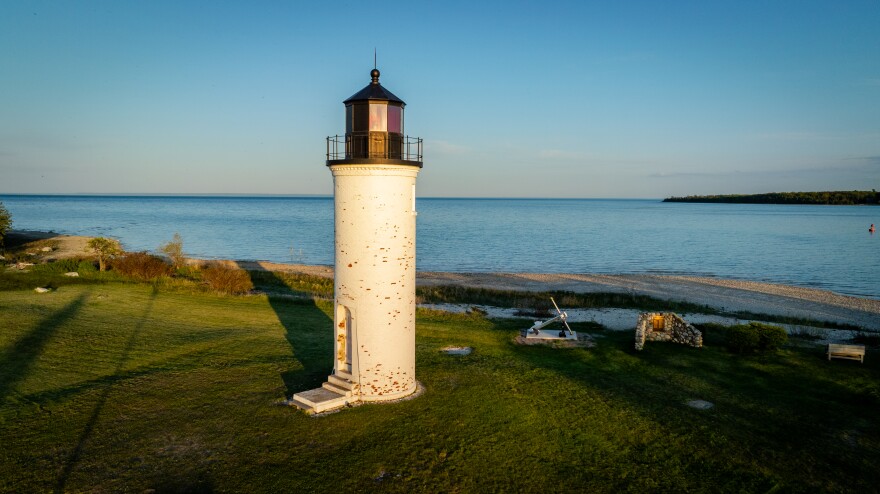The Michigan Department of Natural Resources recently introduced two proposals that would address environmental concerns on Beaver Island, one of Michigan’s most biodiverse areas.
What would the proposals do?
The DNR said the proposals will support forest management outcomes detailed in the Beaver Island Implementation Plan created by the Northern Lake Michigan Islands Collaborative.
The first proposal would extend antlerless deer hunting on the archipelago by 20 days. Doing so would align the island’s current hunting regulations with those of mainland Charlevoix County and would reduce the harm the island’s growing deer population is causing vegetation.
The second promises the introduction of seven timber harvesting projects on 240 acres of state managed land. The DNR said these projects will improve age class diversity and wildlife habitats throughout the island.
Concerns about extending the firearm season
Jeffrey Powers, an active community member and former president of the Beaver Island Wildlife Club, said the community has mixed opinions on the proposals.
“I think it's a very active topic right now because deer hunting is very important to the island and the island heritage,” Powers said. “There's been deer on the island now for almost close to 100 years.”
He said the DNR is right to be concerned about the growing population, and that extending season might accomplish that goal. Powers also offered alternative plans, such as limiting the buck harvest for a few years to encourage hunters to harvest more does.
“My fear of a big, long extended season is that we've had years in the past where you have a couple bad winters in a row, and the coyote population has increased like it is right now,” Powers said. “They will take the vast majority of the young fawns, and it can greatly cause dramatic drops in the deer population.”

Potential consequences of timber harvesting
Jeremy Wood, a DNR wildlife biologist, said the timber harvesting projects would allow different species of younger trees in the island’s forests to grow faster as a result of more sunlight being allowed through the canopy.
“There's a lack of diversity in the overstory,” Wood said. “So, this would bring in some different tree species that are native to the island to help those get re-established.”
Timber harvesting has long been confirmed to have positive impacts on forest ecosystems, Wood said, but the projects do come with risks.
“There [are] concerns about potential utilization of the wood,” Wood said. “[There are] concerns about, if a producer was brought in from off the island, how that wood is going to get off the island, and whether or not there is potential to introduce invasive species.”
He said that while the 36-mile distance from the mainland to the island makes it difficult to transfer invasive species, it is not impossible. Given that invasive species are a large concern in regard to the health of the island’s environment, Wood said any timber contractors would have to abide by equipment cleaning mandates before accessing the island.
Deer population on Beaver Island
According to a 2021 study conducted by the Michigan Natural Features Inventory, researchers documented around 742 deer on the island.
Wood said that the deer population has continued to grow.
“A deer density study on both Beaver Island and Garden Island showed that there was an average density of approximately 32 deer per square mile across the island,” Wood said. “Other research out there suggests that once you get above about 12 deer per square mile, that starts to lead to impacts on forest regeneration.”
The current deer population density, Wood said, is triple the number of deer per square mile that allows vegetation to thrive. He said that the deer are over browsing and negatively impacting sensitive vegetation communities.

Statewide hunting trends
The number of hunters in Michigan and across the Midwest has been on a downward trend since the 1970s. Recently, the state has started to see an uptick in the amount of hunters going out into the woods.
In their 2024 Preliminary Firearm Deer Season Results, the DNR reported that the deer harvested per year in Northern Michigan and the Upper Peninsula increased from 2023 to 2024. The amount of hunting licenses purchased in that time also increased.
In the Lower Peninsula, however, the number of deer harvested decreased from 2023 to 2024.
The DNR suggested the lower peninsula’s data could in part be a result of early corn harvests and the spread of Epizootic Hemorrhagic Disease in southern counties.

Future action
The DNR invited the public to voice their concerns to DNR officials during a meeting on Monday, Sept. 29, 2025.
The public’s input will then be presented to the Natural Resource Commission for consideration in the spring. If the proposals are approved, they will start being implemented in 2026.
Implementation would be a combined effort between the DNR, the Forest Management Division, Wildlife Division, the Little Traverse Bay Band of Ottawa Indians and other local organizations.
“We'd be continuing to monitor harvest to see if there's any concerning trends, or things like that, at a local level that would suggest that there may need to be modifications or if we need to pull back in the future,” Wood said.
We note the Michigan Department of Natural Resources is a financial supporter of WCMU. We report on them as we do with any other organization.





